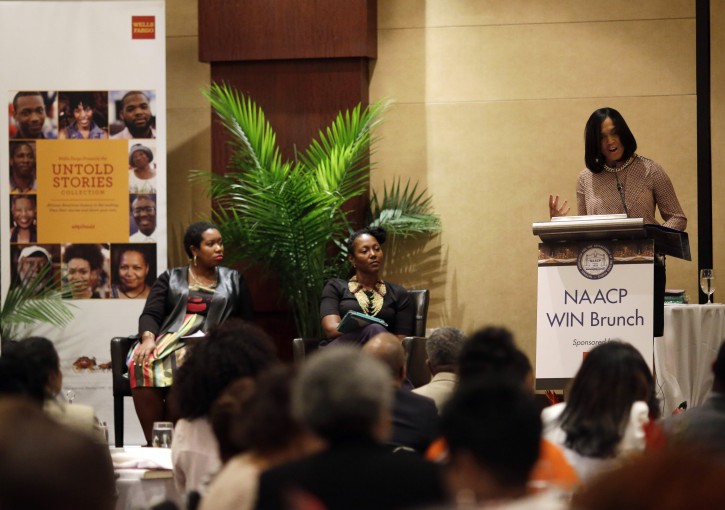
Maryland – When Baltimore City State’s Attorney Marilyn Mosby decided to run for her current office, she reached out to community activists, politicians and business leaders, eager to share her ideas. Almost all of them, she said, discouraged her from seeking election.
“I was told I was too inexperienced, that I couldn’t raise enough money, that my decision to run could not only disrupt but potentially destroy my husband’s political career,” she recalled during a speech Sunday in Philadelphia. “For me, as a young black woman, to run against an older white male incumbent, powerful, with the ability to raise close to a million dollars, the skeptics wanted to know: How could I have the audacity?”
It was a line that drew cheers from the largely female crowd of more than 500 people gathered at an NAACP empowerment forum, part of the organization’s 106th annual convention. Mosby ignored the advice and was propelled to victory. At 35, she is the youngest chief prosecutor in any major American city.
“I tell you my story not to brag or to boast. I tell my story, I share my testimony, because I recognize that I got to where I am today not because of my own doing but because of the blood, sweat, tears and sacrifices of the audacious warrior women who have come before me, who lived their lives by example for all of us,” she said.
Mosby was thrust into the national spotlight in April after 25-year-old Freddie Gray was arrested and suffered a spinal injury while being transported in a police van. He died a week later.
Residents took to the streets in protest for days afterward. Some of the demonstrations became violent and some protesters looted businesses and set fires. In response, the governor announced a citywide curfew and deployed the National Guard to Baltimore.
After a medical examiner ruled Gray’s death a homicide, Mosby charged the six officers involved in Gray’s arrest with felonies ranging from assault to murder.
During her speech Sunday, she shared personal stories of loss, including the shooting death of a beloved cousin when she was 14 that she said helped her turn her pain into her passion to reform the criminal justice system. She talked about setbacks, like when she was wait-listed at every law school she’d applied to and then failed the bar exam the first time she took it. She described how others had doubted her, sometimes causing her to doubt herself.
Overcoming those hardships were an important part of her story, she said, adding they’re important parts of all stories and should be shared to inspire others.
“All too often, in our communities, when we feel we’ve obtained a level of success, we want people to see where we are and not how we got to where we are,” she said. “But we, as women, must cast our shame, our pride, our egos aside and continue to pass on our testimonies, our tried and tested journeys, to the generations coming behind us.”
Mosby ended by telling the crowd: “Ladies, we have work to do and the time is now.”
As reported by Vos Iz Neias
